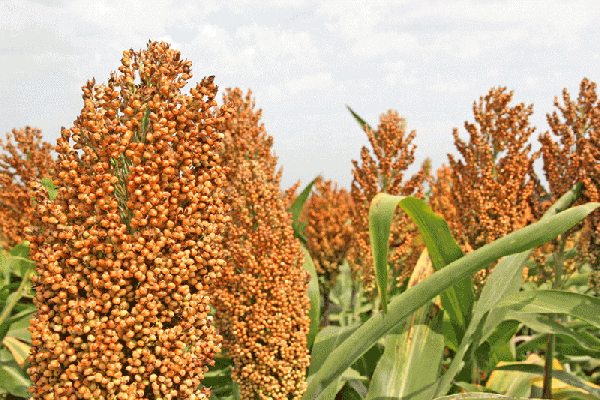
A new herbicide-tolerant grain sorghum, Inzen Z, may help make the crop more practical and profitable for Mississippi growers, says Erick Larson, who previewed the system at the recent Mississippi State University Technology Field Day.
Grain sorghum has become more popular as an alternative crop for many Mississippi producers, and the state has seen a significant increase in sorghum acres this year, says Larson, Mississippi State University associate Extension/research professor of Plant and Soil Sciences. “Our producers can grow this crop well, and the state has often led the U.S. in sorghum yield,” he says.
Inzen Z was developed through traditional breeding methods to insert ALS herbicide resistance into sorghum. “DuPont Crop Protection is bringing it to market, and we’re excited to be working with them in evaluating this product,” Larson says.
Stay current on what’s happening in Mid-South agriculture: Subscribe to Delta Farm Press Daily.
The non-GMO herbicide tolerance trait will deliver enhanced grass weed control in grain sorghum to help growers improve crop yield and quality, according to DuPont Crop Protection and Advanta US, which have signed a joint agreement to commercialize the Inzen Z trait. The Z stands for Zest, a herbicide formulation to be used with the hybrids.
This advance in sorghum genetics will give growers greater ability to control yield-limiting grass weeds in grain sorghum or milo, a key crop for areas with limited rainfall, the company says.
It is estimated that annual grass weeds reduce U.S. sorghum yields by approximately 20 percent. The Inzen Z herbicide tolerance trait will offer Mississippi growers a viable herbicide to control johnsongrass in sorghum, Larson says, and will potentially provide more effective control of key grass weeds, including broadleaf signalgrass, barnyardgrass, crabgrass, and browntop millet.
New postemerge treatment options
DuPont’s Zest, a nicosulfuron herbicide formulation will be used as a postemerge treatment with the new sorghum hybrids. Registration for the herbicide is expected in time for it to be available for the 2016 season.

“Mississippi producers can grow this crop well, and the state has often led the U.S. in sorghum yield,†says Erick Larson.
“This technology will offer growers postemergence herbicides not feasible for conventional grain sorghum,” Larson said at the field day. “Grain sorghum is a good crop on upland soils, where drought stress often limits crop yield, or when you get pushed into late planting. Optimum germination temperatures are about the same as for cotton. These plants thrive in hot, dry conditions; sorghum is a very forgiving plant, very resilient under drought conditions.
“It’s a stable-yielding crop, with 75 to 80 bushel potential under stressful to average growing conditions. Under better growing conditions, yields could easily go as high as 130 bushels, and under the best conditions, with irrigation, as high as 160 bushels per acre.”
Weed control has been a limiting factor in Mississippi grain sorghum production, Larson says, with programs based mainly on pre-emerge herbicides. “There have been very few postemerge options, and that’s where this system comes into play. This will allow control of a variety of weed species, as well as crop tolerance to ALS herbicides, such as Leadoff.
“In our Inzen Z plots the past two years, we’ve evaluated various treatments on tall waterhemp, browntop millet, and morningglory, and weed control has been exceptional.
Leadoff, can be used as a burndown treatment prior to planting sorghum, Larson says, and Zest can then be applied over the top for postemerge control.
“When using this new grain sorghum system, growers should be aware that certain Inzen-Z hybrids are a little yellowish at the time of emergence,” he notes. “They will grow out of it and look normal later in the season. Also, the application of Zest herbicide may cause some temporary yellowing to the Inzen-Z hybrids (the herbicide will kill non-Inzen-Z hybrids). There is no stunting of the Inzen-Z hybrids from Zest, however, and the temporary chlorosis appears to be cosmetic.”
Commercialization of Inzen Z will provide sorghum growers with a number of production and marketing advantages, the company says. The ability to control grassy weeds will allow for greater yields, profitability and convenience.
About the Author(s)
You May Also Like




